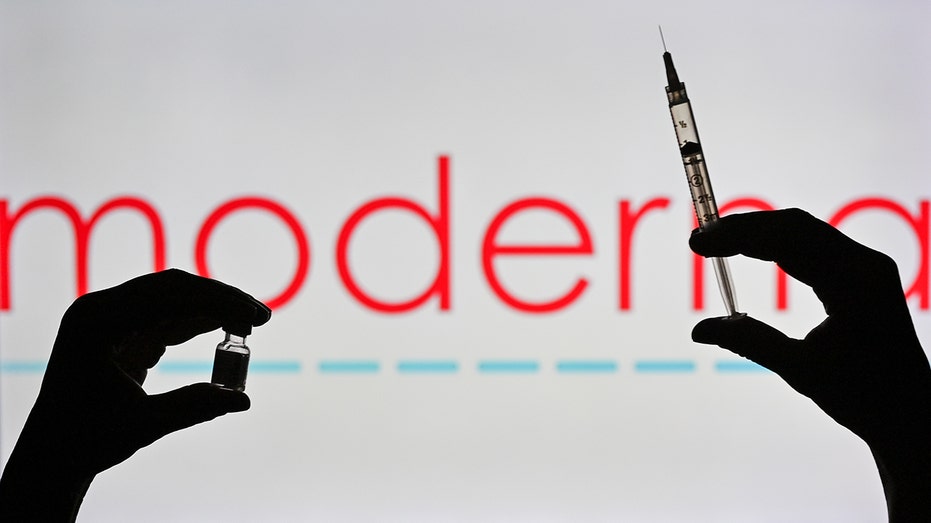Moderna looks to inspire ‘revolution’ in cancer treatments: CEO
Moderna, Merck to enter FDA phase 3 trials in 2023 for preventative melanoma vaccine
Modern, Merck create skin cancer vaccine showing promising results with melanoma patients
Moderna CEO Stephane Bancel discusses the 'very exciting' advancements of a new skin cancer vaccine shown to reduce the chance of a melanoma relapse by 44%.
Moderna is in the midst of a cancer treatment and vaccine "revolution," according to its CEO who joined "Mornings with Maria" on Wednesday to discuss its latest advancement with health care company Merck.
"A lot of progress has been made in the field of oncology in the last five or ten years," Moderna CEO Stéphane Bancel told host Maria Bartiromo. "And one of the things that we learned as a medical community is the role of T-cells in your and my immune system to basically eat cancer cells."
| Ticker | Security | Last | Change | Change % |
|---|---|---|---|---|
| MRK | MERCK & CO. INC. | 117.57 | -4.31 | -3.54% |
| MRNA | MODERNA INC. | 41.95 | +0.94 | +2.29% |
Alongside pharmaceutical giant Merck and its best-selling drug Keytruda, Moderna has signaled "promising" results in its development of a preventative Keytruda-vaccine for a deadly form of skin cancer, melanoma. According to the CEO, data thus far shows the shot can reduce the risk of a melanoma recurrence by 44%.
"So that's very exciting, and the statistical significance of the study is very good," Bancel said. "And so we are flying into phase 3, talking to regulators and trying not only in melanoma, but those other cancers, because we think this mechanism can be applied in other cancer."
Moderna
MODERNA AND MERCK TEAM-UP TO FIGHT MELANOMA
From a chemistry standpoint, the technology used in the melanoma vaccine is the "same" as the COVID-19 vaccine, equipped with DNA-specific permutations, according to the CEO.

Moderna and Merck's experimental melanoma vaccine will go into phase 3 trials with the FDA in 2023, Moderna's CEO said on "Mornings with Maria" Wednesday, December 14, 2022. (Getty Images)
"It's the same chemistry for the mRNA molecule, the same chemistry for the lipid around it, same manufacturing process," Bancel said. "And so we're very excited about this advancement. And it's early days, still a lot of work needed to get to phase 3 and so on, but very exciting, therefore, for patients and for science."
Following this scientific advancement, Bancel expressed Moderna’s hopes of applying the same DNA technology to other types of cancer, including tumors, lung, prostate and breast cancers.
"Could we, like we could in melanoma, increase the number of people that respond and reduce the number of relapse and death in lung cancer? That would be amazing for patients," the CEO said. "And we're going to train as many cancers as we can where you make scientific sense, because we want to save as many lives as we can."

According to Moderna CEO Stephane Bancel, it's splitting study and profit costs evenly with its melanoma vaccine-maker partner, Merck. (AP Newsroom)
Bancel called this type of immunotherapy a "revolution" for the future of cancer therapies and treatments.
"Immunotherapy like Keytruda has been a revolution. It has been enabling our immune system to fight off cancer. And so the way to think about Moderna is a bit like immunotherapy 2.0," Bancel said. "When we add to that great technology of an immunotherapy, we add the cancer vaccine designed individual by individual - so just made for you in a matter of a few weeks - so that we get your T-cell to do their job, which is to recognize the cancer and to go eat it."
Amid Moderna’s positive revelations, the company’s stock soared on Tuesday and market experts predict Moderna to bring in $2 billion in sales by 2031 from the program. Bancel also confirmed that profits are being split 50/50 between Moderna and Merck.
"So moving forward, we're going to split the cost, like for studies or manufacturing, 50/50, and we're going to share a profit 50/50 as well," the CEO noted.
Moderna CEO on Russia invading Ukraine, new COVID variant, alleged genetic patent match
In a wide-ranging interview on ‘Mornings with Maria,’ Moderna CEO Stephane Bancel discusses how a Russian invasion could impact the company and COVID-19 progression.
GET FOX BUSINESS ON THE GO BY CLICKING HERE
In the midst of the pandemic, Moderna developed one of the most popular vaccines used to protect patients against COVID-19, and the drug-maker brought in more than $3 billion from its Spikevax in this year’s third quarter.
But, according to the Associated Press, vaccine use has slowed, and Moderna depends on Spikevax for nearly all its revenue.
The Associated Press contributed to this report.






















